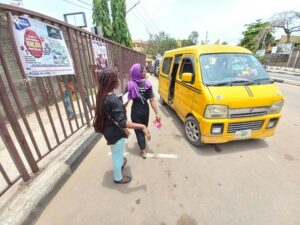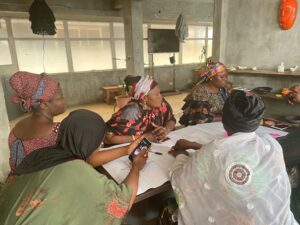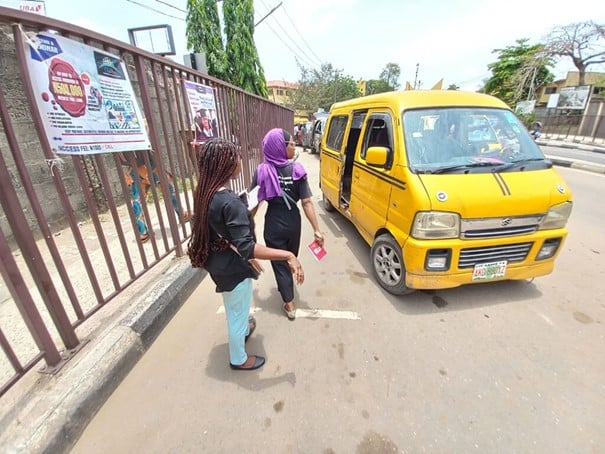Urbanization in Africa is rapidly increasing. Mobility needs are mainly catered for by poorly regulated popular transport services. Gender-specific needs are rarely considered in public transport due, in large part, to a lack of data. In developing and emerging markets, where mobility data is already hard to come by, obtaining gender-disaggregated data is even more challenging. City officials and planners need this data to optimize routes, plan integrated systems and impose equitable policies. The Transformative Urban Mobility Initiative (TUMI) commissioned WhereIsMyTransport to roll out one of Africa’s first systematic large-scale gender-sensitive data collection exercises around women’s experiences in the public transport sector.
Leveraging the power of data and digital technologies to ensure women’s mobility needs are center stage
Africa is urbanizing rapidly. Much of this growth (70 to 100%) is catered for by popular transport services which go by many local names – matatus, danfos, dala dalas, boda bodas, minibus taxis – and provide high coverage, high frequency services at a low cost. Popular transportation is often the only services available and offer relatively low walking distances from origin to destination. Despite the necessity of these services, popular transit being out of government control has little to no regulation, contributing to shifting prices, lax safety, labor and environment regulations and overly centralized and congested routes.
Like formal transport services, popular transit is often blind to the complex mobility needs of women which go beyond those of an able-bodied man. Women’s trips are less linear often involving more stops than a man. These might be to drop children at school, check on elderly parents, or to run household chores. Women’s journeys involve more pedestrian trips, and they are more likely to use public transit during off peak travel times. Women have less access to private vehicles and are also less likely to have a driver’s license than men. Women also report regular incidents of sexual harassment and assault on popular transit.
Harnessing the potential of data and digital technologies can support cities address this blind spot and adapt and plan their mobility services so that they address the intersectional realities of all.

Ride-Alongs: Researchers accompanying women on their daily journeys, mapping their door-to-door travel and witnessing the obstacles they faced while using
transport (WIMT, 2022)
To create more inclusive and more feminist transport systems, digital tools and data are needed
Despite the increasing numbers of women relying on public transport, gender-specific needs are rarely integrated into its design, planning, and operation. For decades transport planning has limited itself to designing transport services and systems on quantitative methodologies. Revealing a more nuanced truth of women’s public transport experiences goes beyond the ‘aggregated percentage findings’ traditionally obtained through surveys and traffic counts. Instead, user-centric, mixed-methods approach are needed. Qualitative methods provide more granular insights into the varying decision-making stages of a woman’s commuting journey. As women are not a single homogeneous group and their needs and pain points vary greatly depending on their income levels, household structure, occupation, and age, for example.
In African cities, gender-equitable data is especially stark as popular transport services are privately provided and are often not under the purview of public transport authorities, when they exist. Many governments view popular transit as ‘chaotic’ and do not require operators and larger businesses to collect and share data. The data that does exist is then often divided among a multitude of actors, is very heterogeneous and often inaccessible. Without data to visualize and analyze these dynamic systems, cities are making decisions that do not account for how the majority moves and are based off assumptions of the standard male commuter.
Open data also creates an opportunity for technology companies, entrepreneurs, and researchers to provide transit users, operators, and authorities with new services. General Transit Feed Specification (GTFS) provides a standardized and open format for organizing transit data and is the most common format used by transport authorities around the world. An intrinsic challenge to GTFS for popular transit systems is their flexible and demand responsive nature as GTFS was originally designed for more fixed, scheduled systems. Despite these challenges, a growing number of developing cities are collecting and opening their GTFS data to developers. Nairobi is one of the only cities in Africa to document and upload informal transit data. Digital Matatus collected data from Nairobi’s extensive Matatu network (a system of privately owned minivans) through participatory digital mapping using smartphones to collect GPS data. Despite more and more African cities collecting transit data, there is little to no standardized approaches to ensure inclusivity.
Promoting inclusivity in popular transport systems starts with inclusive data collection that depicts diverse mobility needs, behaviors, coping strategies and capabilities on an individual level. Robust intersectional, gender-equitable data goes beyond GPS cell data and surveys and is complemented by qualitative methods.
A pioneering data collection exercise in three major African cities
TUMI worked with WhereIsMyTransport in three major African cities: Nairobi, Kenya; Lagos, Nigeria; and Gauteng, South Africa to undergo a comparative methodology that employed experiential and ethnographic research to unearth deeper insights on the motivations and decision-making of women using popular transport services. Over a five-month period, WIMT worked in close collaboration with a network of local researchers to host several research activities, from surveys, focus-group discussions, and ride-alongs to journey and women-only empathy map workshops.
The study provides evidence of what is missed when we don’t take the gender data gap into account when evaluating and planning for gender-responsive mobility. This includes having a clear methodology of how data is collected, who participates, what types of data is collected, making equal space for qualitative, story and experience-based data, and, of course, how that data is analyzed.

Research Lab: Interactive women-only group sessions in which participants discussed their transport experiences (WIMT, 2022)
- Read the findings of the report here. Take a deep dive into TUMI’s work in bridging the gender data gap in transport here.
- TUMI at a glance:The Transformative Urban Mobility Initiative (TUMI) is implemented by GIZ and funded by the German Federal Ministry for Economic Cooperation and Development (BMZ). TUMI is the leading global implementation initiative on sustainable mobility. TUMI supports transport projects all around the world and enables policy makers to transform urban mobility. Website: www.transformative-mobility.org
- Why we’re now calling it popular transport: In research and policy popular transport is interchangeably called “informal transport,” “paratransit,” or “artisanal public transportation” however this defines it as sub-standard or subclass and connotes that there is a functioning ‘formal’ transportation system. Popular transport better depicts how ubiquitous it is. Read more: We’re calling it Popular Transportation (Full) — The Global Network for Popular Transportation

Author:
Ariadne Baskin
A sustainable mobility expert with on-ground experience in Africa, Asia and the Caribbean. Ariadne oversees TUMI’s Africa portfolio and co-leads Women Mobilize Women. Previously, she worked for C40 Cities and UN Environment on public transport, e-mobility and mobility justice. She holds a master’s degree in Urban Planning from the LSE.






